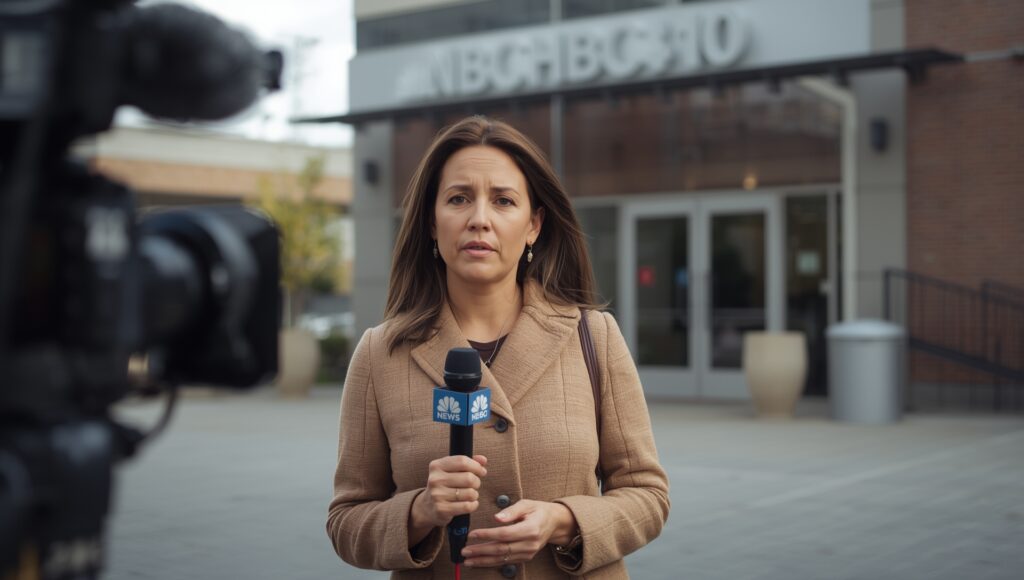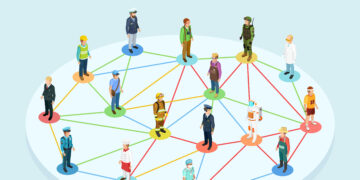A calm opening
When emotions run high, the easiest thing to do is to find a target. The harder thing is to pause, breathe, and choose care. That’s the heart of the message in “kelly bates asks supporters not to take out their anger on nbc 10 …” — a reminder that even in tense moments, our neighbors on every side are still people. It’s a simple call for kindness, but it’s also a practical one. Anger on the internet has a way of snowballing into real-world harm, and a respected local voice asking for calm is a chance to reset.
The person behind the headline
Kelly Bates is a familiar figure to viewers in Rhode Island and across Southern New England. As a longtime meteorologist associated with NBC 10’s local presence, she has been part of the daily rhythm for many households. That familiarity matters here. When someone you trust says, “slow down,” it lands differently than when a stranger says the same. The phrase “kelly bates asks supporters not to take out their anger on nbc 10 …” is less a headline and more a neighborly nudge from a person who understands the community’s emotions and the newsroom’s realities.
What she asked for
The core ask is straightforward: support without harm. Kelly is not asking people to abandon their feelings or to pretend nothing happened. She’s asking supporters not to channel frustration into attacks on people who work at NBC 10 or to ignite pile-ons that can escalate quickly. In plain terms, “kelly bates asks supporters not to take out their anger on nbc 10 …” is a plea for boundaries: criticize choices, not human beings; push institutions to do better, but don’t create collateral damage for rank-and-file staff who didn’t make the call.
That distinction matters. Accountability and anger are not the same thing. Accountability is targeted, specific, and focused on outcomes. Anger at individuals—especially when it turns into harassment—rarely changes anything for the better. It simply leaves scars.
Why this moment matters
There’s a body of research that helps explain why this kind of message is necessary. Organizations like the Pew Research Center have documented how common online harassment has become for both public figures and private citizens. The American Psychological Association has written extensively about how anger spreads faster than nuance in digital spaces, and how that surge often leaves people feeling worse, not better. Media-trust research from the Knight Foundation has shown that local journalism’s credibility is fragile and deeply connected to how communities talk about and to their newsrooms.
These findings map onto real life. When “kelly bates asks supporters not to take out their anger on nbc 10 …” she’s speaking to a pattern we all recognize: a controversial decision sparks a viral thread; supporters rush in to defend; critics push back; soon, line producers, assignment editors, and receptionists—people far from any executive decision—are drowning in messages. The outrage machine doesn’t ask who actually did what. It just churns.
Accountability without targeting
Healthy communities know how to separate critique from cruelty. That line can be hard to see in the moment, so it helps to name it. Responsible criticism focuses on policies, outcomes, and evidence. It asks for transparency instead of assuming the worst. It resists rumors and shares verified information. It remembers that the person on the other side of the screen has a family and a life.
Harassment looks different. It’s doxxing, insults, threats, dogpiling, and coordinated campaigns to intimidate. It’s contacting people’s spouses or kids. It’s spamming professional channels with personal attacks. And it’s never justified, no matter how strongly we feel about a decision. That’s the heart of “kelly bates asks supporters not to take out their anger on nbc 10 …” — a reminder that the means are part of the message.
Organizations like the Dart Center for Journalism and Trauma and newsroom ethics guides have emphasized how quickly targeted anger can escalate into lasting harm. They recommend practical steps to lower the temperature: name the behavior you want to see, encourage specificity, invite private channels for sensitive concerns, and set clear boundaries.
How to show support wisely
Support can be powerful when it’s channeled constructively. If you admire Kelly Bates and want to stand with her, there are ways to do that without creating new wounds. Share your appreciation in notes that emphasize respect. If you reach out to any organization, focus on the decisions and the outcomes you hope to see, not on the character of individuals. Offer feedback that is specific, brief, and civil. Avoid the pile-on, even when it feels tempting.
When you talk with friends or post on social media, consider sharing why her message matters to you: that “kelly bates asks supporters not to take out their anger on nbc 10 …” because communities are healthiest when we can disagree without dehumanizing one another. That resonates beyond any single newsroom. It’s a model for every civic disagreement.
One more practical step: pause before you post. A short delay often softens the sharp edges of a response. If new information arrives—and it often does—being a beat behind can mean being more accurate and more fair.

Online spaces and de-escalation
Digital platforms make it easy to speak, and hard to hear. Research summarized by the APA notes that anger is contagious; social feeds prioritize engagement, and outrage engages. But people can counter that with intentional choices. If you manage a community forum, say out loud that you’re aiming for clarity and grace. Set basic rules: no personal attacks, no speculation framed as fact, no contacting people off-platform.
If a thread heats up, “reset the room” with a post that names the shared purpose: to understand what happened, to support people with dignity, and to ask good-faith questions. If someone violates the rules, moderate consistently. That fairness builds trust over time, which is part of the deeper goal embedded in “kelly bates asks supporters not to take out their anger on nbc 10 …” — rebuilding trust, not burning bridges.
For individuals, small tools help: mute words that spike your stress, set your own limits on notifications, and step away when the conversation shifts from issues to insults. Personal boundaries don’t mean you care less. They’re how you stay present long enough to make a difference.
What we know and what we don’t
Moments like these tend to be messy. Public statements rarely include all the context, and organizations often can’t share internal details immediately. That’s another reason the tone of “kelly bates asks supporters not to take out their anger on nbc 10 …” matters: it gives space for facts to surface. It’s okay to say what we know for sure, to name what we’re still trying to understand, and to hold our strongest conclusions until more pieces are in place.
It also helps to remember that in local media, many outcomes are the result of multiple pressures—budgets, contracts, staffing, programming decisions, and the constant challenge of serving audiences well. None of that excuses missteps, but it does explain why quick takes are often incomplete.
The wider context
Public figures asking for calm isn’t new. Journalists, athletes, and community leaders have done it in heated moments because they’ve seen the cost of letting anger run unchecked. Studies of online discourse, including work cited by Nieman Lab and newsroom standards bodies, speak to how affirmation and clear norms can reduce toxic replies. Put plainly: when someone you trust models restraint, more people follow.
In that light, the sentiment behind “kelly bates asks supporters not to take out their anger on nbc 10 …” is part of a broader civic skill set. Communities thrive when they can absorb conflict without tearing apart. That doesn’t mean no conflict—it means conflict handled with honesty and care. It means recognizing that people make mistakes, that institutions can change, and that the way we communicate shapes those changes.
Local impact
Local newsrooms aren’t just content factories; they’re made of people who live where you live. When a community turns its anger on a station, the faces who feel it first are often the least empowered to respond: interns, junior producers, engineers, reception staff. They field the calls and emails. They sit in the crosshairs of something they didn’t design. The message inside “kelly bates asks supporters not to take out their anger on nbc 10 …” protects those people. It also protects the broader relationship between a station and its audience.
Trust in local news is built in small moments—accurate forecasts, timely alerts, school closings, charity drives. When the discourse around a station becomes hostile, even for a season, that trust can fray. The result is less listening on both sides. A community that can protest with principle keeps the door open for reconciliation and progress.
A constructive path forward
So what can people do with strong feelings? Start by naming what matters most to you. If you value fairness, ask for clear explanations. If you value stability, ask about what comes next for coverage and community engagement. If you value transparency, request timelines for updates. Keep it short. Keep it specific. Keep it civil.
In private settings, write notes that thank people for their work while also stating your concerns plainly. In public settings, resist the temptation to quote-tweet outrage or to share unverified claims. If you see harmful behavior, say so without escalating: “This isn’t how we do things here.” These actions seem small, but they’re how cultures change.
If you’re hurting, say that, too. Sometimes the most powerful line is the simplest: “I’m disappointed, but I don’t want anyone harmed because of this.” That sentence echoes the theme of “kelly bates asks supporters not to take out their anger on nbc 10 …” and makes it real in your voice.
The human layer
Behind this story are people who will see each other at grocery stores, school events, and coffee shops. That’s what distinguishes local news from national drama. We carry each other’s histories. We remember who showed up for the charity telethon, who warned us about the storm, who checked in after a tough week. It’s one reason the call for kindness resonates. It’s personal.
Even in disagreement, we can hold onto that. We can choose to be the kind of community that gives one another the benefit of the doubt, that asks good questions, and that leaves room for apology and repair. We can insist on high standards without letting anger be the only tool we use.
Why did Kelly Bates ask supporters not to take out their anger on NBC 10?
When emotions surge, online anger often spills onto the nearest people rather than the actual decision-makers. That’s why “kelly bates asks supporters not to take out their anger on nbc 10 …” is a timely, human appeal. She’s acknowledging real frustration while drawing a clear line: support should never turn into personal attacks, harassment, or dogpiles that harm staff who had no control over what happened. Her message aims to protect people, protect the community’s tone, and keep the door open for constructive conversation and solutions.
Why it matters
- Misdirected anger can damage careers and mental health.
- It clouds the facts and makes it harder to resolve the issue.
- It erodes community trust in local news, which everyone relies on during storms, emergencies, and civic moments.
Can I still criticize NBC 10 without crossing the line?
Yes. Criticism and accountability are not only allowed—they’re healthy when done well. The spirit of “kelly bates asks supporters not to take out their anger on nbc 10 …” is not to silence critique, but to reshape it. Focus on decisions, outcomes, process, and values. Avoid personal insults, threats, mass-shaming, and rumor-spreading. Keep your tone firm but respectful, and stick to verifiable facts.
How to do it
- Be specific: name the decision or policy you’re addressing.
- Be factual: share what you know, flag what you don’t.
- Be fair: assume good faith unless you have evidence otherwise.
- Be brief: concise feedback gets read and considered.
Who at a TV station makes decisions, and how can feedback reach the right people?
In most local stations, high-level choices involve managers such as the news director, general manager, or executive producers. On-air talent and junior staff often don’t control those calls. That’s why broad anger can splash onto the wrong people. If “kelly bates asks supporters not to take out their anger on nbc 10 …” resonates with you, aim your feedback where it can actually help.
Practical steps
- Use official channels: audience feedback forms, viewer services, or a station’s public contact points.
- Keep messages professional: your goal is clarity, not catharsis.
- Ask for next steps: timelines, policy reviews, or a follow-up statement.
- Thank staff for reading: courtesy increases the odds of a thoughtful reply.
What does responsible support for Kelly Bates look like online?
Responsible support blends empathy with restraint. It means celebrating Kelly Bates’ work, voicing concern, and resisting the urge to amplify outrage. The heart of “kelly bates asks supporters not to take out their anger on nbc 10 …” is this balance—standing with a person you value without creating collateral harm.
Do this instead of piling on
- Share appreciation posts that are positive and non-accusatory.
- If you post concerns, state your goal (transparency, fairness, dialogue).
- Avoid tagging private individuals or lower-level staff.
- Steer friends away from rumor threads; ask for sources and context.
How do I de-escalate a heated social media thread about this?
De-escalation is a skill—and it works. A calm, precise post can reset the tone and keep a conversation from tipping into harassment. When “kelly bates asks supporters not to take out their anger on nbc 10 …” she’s inviting us to be the person who cools the room, not heats it up.
Simple scripts and tactics
- Name shared values: “We all care about fairness and community.”
- Shift to facts: “What do we actually know, and what’s still unclear?”
- Set boundaries: “No personal attacks—focus on decisions and outcomes.”
- Slow the tempo: suggest a pause before posting; invite private messages for sensitive details.
- Use tools: mute hot keywords, limit replies, or moderate comments consistently.
What’s the difference between accountability and harassment in this situation?
Accountability addresses actions and structures; harassment targets people. Accountability asks hard, specific questions and proposes improvements. Harassment punishes and intimidates. The line is crossed when criticism becomes personal, relentless, or threatening. The core of “kelly bates asks supporters not to take out their anger on nbc 10 …” is to keep us firmly on the accountability side.
Clear distinctions
- Accountability: evidence-based critique, policy feedback, constructive asks.
- Harassment: doxxing, insults, dogpiles, contacting family, threats, smear campaigns.
- Guiding test: Would you be comfortable saying this, in this tone, to someone face to face?
What facts should I verify before posting about the NBC 10 situation?
Facts first, feelings second. Emotions are real, but facts are how communities make progress. Before you post, check whether the detail you’re sharing is confirmed, current, and complete. Misinformation spreads fast in emotional moments; accuracy is a gift you give your community.
A quick pre-post checklist
- Source: Do you have a direct statement or credible reporting?
- Date: Is the information up to date, or is there a newer clarification?
- Scope: Are you sharing context (what we know vs. what’s unknown)?
- Impact: Will this post inform others—or inflame them?
- Intent: Are you seeking solutions or just signaling anger?
How could outrage affect local newsroom staff and community trust?
Local newsrooms are made of neighbors, not faceless entities. When outrage turns into personal attacks, the first people hit are often junior staff who didn’t make any decisions. This harms morale, diverts attention from reporting, and can push good people out of local journalism. Over time, sustained hostility erodes community trust—making it harder for stations to serve the public during weather events, emergencies, and civic debates. The plea at the center of “kelly bates asks supporters not to take out their anger on nbc 10 …” is about protecting those human bonds while still demanding high standards.
Real-world effects
- Emotional toll: stress, anxiety, burnout for newsroom teams.
- Operational drag: management time spent on crisis control instead of service.
- Trust spiral: audiences listen less; newsrooms engage less; everyone loses.
What are constructive next steps for viewers who are upset?
Channel your energy into action that helps. Being upset is understandable; what you do next is what counts. The most effective steps pair clarity with care and aim feedback where it can create change.
Action plan
- Write a concise, respectful note that names your concern and desired outcome.
- Ask for transparency: “Can you share more context or a timeline for updates?”
- Support good work: acknowledge the staff who consistently serve the community.
- Step away from rumor mills; wait for verification before amplifying claims.
- In your circles, model the tone you want to see—firm, fair, factual.
What is the bigger lesson for the community from this moment?
Every community needs the muscle to disagree without dehumanizing. That’s the deeper lesson inside “kelly bates asks supporters not to take out their anger on nbc 10 …” We can hold institutions to account and still protect people. We can push for better decisions without turning neighbors into targets. When we practice that balance, we strengthen the local ecosystem we all rely on—newsrooms serve better, audiences trust more, and conflict becomes a pathway to improvement rather than harm.
Takeaway
- Kindness isn’t the opposite of accountability; it’s the way to make accountability stick.
- Precision beats volume. Calm clarity beats viral outrage.
- The relationships we keep intact today are the bridges we’ll need tomorrow.
Closing
The line “kelly bates asks supporters not to take out their anger on nbc 10 …” is a small sentence with a big center of gravity. It’s about restraint, yes, but it’s also about imagination. Can we picture a way through this where people feel heard and no one is harmed? Can we be both passionate and fair? Can we push for better without breaking things that can’t be easily fixed?
Communities that answer yes to those questions don’t just survive hard news cycles—they grow stronger from them. They learn to talk, to listen, and to act with a steadiness that doesn’t depend on being right in the moment. That’s what kindness makes possible. And that’s what this moment, and many moments to come, will need.
Sources and context
- The Pew Research Center has reported on the prevalence and patterns of online harassment, especially in social media contexts.
- The Knight Foundation has studied trust in local news and how audience relationships are strengthened or weakened over time.
- The American Psychological Association has published accessible explanations about how anger spreads online and how it affects well-being.
- Newsroom practice discussions highlighted by Nieman Lab and similar outlets have explored moderation, comment policies, and the effects of strong community norms.
- The Dart Center for Journalism and Trauma offers guidance for supporting journalists and communities through high-stress events.
These organizations’ work supports the common-sense wisdom at the heart of “kelly bates asks supporters not to take out their anger on nbc 10 …” — that tone matters, people matter, and how we choose to speak can either heal or harm.
References
- Pew Research Center — Research on online harassment and digital discourse in the United States, including patterns, prevalence, and impact.
- American Psychological Association — Summaries and articles on emotional contagion, anger online, and the effects of digital conflict on well-being.
- Knight Foundation — Studies on trust in local news, audience relationships, and community engagement with local media.
- Dart Center for Journalism and Trauma — Guidance for newsrooms and communities on reducing harm and supporting people during high-stress coverage.
- Nieman Lab (Nieman Foundation for Journalism) — Reporting and analysis on newsroom moderation, comment policies, and healthier community conversations.
FAQs
Why did Kelly Bates ask supporters to hold back?
She recognized that strong feelings can spill into personal attacks and pile-ons. Her message—“kelly bates asks supporters not to take out their anger on nbc 10 …”—asks people to channel concern into constructive feedback rather than targeting individuals.
Is it still okay to criticize decisions?
Yes. Accountability isn’t off-limits. Keep it specific, factual, and civil. Focus on decisions and outcomes, not on personal insults or campaigns that could harm employees who didn’t make the call.
How can I show support without adding heat?
Share appreciation, send respectful notes, and avoid amplifying outrage posts. Pause before you post, verify what you share, and step in to de-escalate when conversations tip toward harassment.
What if I see harassment or misinformation?
Name it and set a boundary without escalating. Report content that crosses lines. Encourage a reset: ask for sources, bring the focus back to facts, and remind people of shared values.
What’s the larger lesson here?
Communities do better when they separate critique from cruelty. The spirit of “kelly bates asks supporters not to take out their anger on nbc 10 …” is a template for how to disagree well—and how to protect people while seeking change.













































